#The dowager empress
Text
R.I.P to Dame Angela Lansbury, who recently passed away at the age of 96
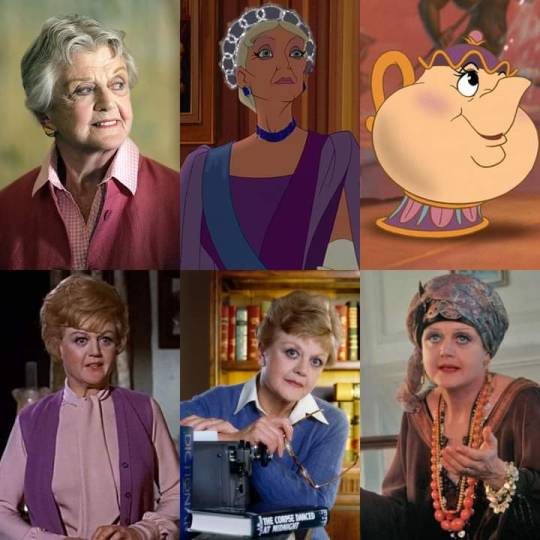

#rip angela lansbury#in memory of Angela lansbury#murder she wrote#jessica fletcher#bedknobs and broomsticks#miss price#nanny mcphee#great aunt Adel#beauty and the beast#mrs potts#mary poppins returns#the balloon lad#death on the nile#salome otterbourne#anastasia#The dowager empress#samson and delilah#semadar#sweeney todd the demon barber of fleet street#mrs lovett
74 notes
·
View notes
Text

Ooh a production of Anastasia will be in Denmark this year! That’ll be really cool especially since the Dowager Empress was Danish. It’ll be at the Det Ny Teater in Copenhagen. It’ll be open some time in September and will run until December.
instagram
#denmark#copenhagen#anastasia#musical#anastasia the musical#anastasia musical#musical theater kid#broadway musicals#the dowager empress#dowager empress#dowager empress Maria Feodorovna#anastasia romanov#Instagram
3 notes
·
View notes
Text

Maomao is always observing Jinshi, she really knows him
#kusuriya no hitorigoto#apothecary diaries#jinshi#maomao#Lady Anshi#Empress dowager#Maomao about Jinshi#jinshi x maomao
291 notes
·
View notes
Text

Women warriors in Chinese history - Part 1
“In the nomadic tribes of the foreign princesses from the Steppes northwest to the northeast of the Chinese borders, women habitually rode horses and were frequently also skilled militarily. They had to be able to survive on their own and defend themselves when their men left camp to herd animals for months on end. Thus, unsurprisingly, many daughters of nomadic and semi-nomadic tribal chiefs were also capable fighters. Madam Pan 潘夫人 of “barbarian origins” during the Wei dynasty, the semi-barbarian Princess Pingyang 平陽公主 who helped establish the Tang dynasty, and the “barbarian queen,” Empress Dowager Xiao, are historical examples of this category of female generals.
While the barbarians to the north were known as fan 番, those belonging to peripheral areas from the southwest to the southeast were known as man 蠻. Like the nomadic princesses, these women of non-Chinese or Chinese ethnic minority groups did not bind their feet and could thus become formidable opponents. Indeed, the female battle units within the Taiping 太平 rebel forces that actually entered combat – rather than merely providing labour as most of the female units did –were reportedly made up in the main of women from the Miao 苗 tribes, aside from the Hakka (Kejia 客家) women of Guangxi.
Female bandit leaders or daughters and sisters of bandit leaders who occupied mountains or established strongholds in marginal lands are almost indistinguishable from the man barbarian princesses of tribal chieftains in novels and shadow plays. Such barbarian women generals and female bandit leaders were rarely privileged enough to be recorded by the historians. The three found most frequently, Madam Xi 洗夫人 (502– 557), Madam Washi 瓦氏夫人 (1498–1557),95 and Madam Xu 許夫人 (1271–1368), were all pro-Chinese. While the first two cooperated with the Chinese government, the third joined Chinese forces against the Mongols. A certain Zhejie 折節 or Shejie 蛇節, a female leader of the Miao tribe, also led a rebellion against Mongol troupes, but she eventually surrendered to them and was subsequently executed.
Real enemies of the Chinese empire, such as the Trv’vy sisters of Vietnam, are hardly ever mentioned by the Chinese, even though they are first recorded in the Han dynastic history. Even under such circumstances, of the women commanders in Chinese history studied by Xiaolin Li, a hefty per cent were from “minor nationalities.”
Female rebel leaders and women warriors in rebel forces tended to rise from peasantry and marginal groups such as families of itinerant performers, robbers, boatmen, and hunters. Many of them are beautiful and charismatic. Most of the rebel groups were basically bandits (known as haohan 好漢, “bravos” euphemistically) – how else could they have survived without a continuous source of income? Many of the bandit groups, like the sworn brothers of the Water Margin, lived in mountains and marshlands, awaiting a chance to start or join in an uprising with the hope of gaining power and legitimacy through either pardon (when they posed too great a threat to the state) or founding a new dynasty. Many had sisters, wives, or daughters who were also capable of leading armies.”
Chinese shadow theatre: history, popular religion, and women warriors, Fan Pen Li Chen
#history#women in history#warrior women#women's history#historyblr#warriors#quotes#women warriors#china#chinese history#asian history#Princess Pingyang#empress dowager chengtian#lady washi#taiping rebellion#trung sisters
153 notes
·
View notes
Text



Dowager Empress Alexandra Feodorovna, widow of Emperor Nicholas I of Russia, photographed the year of her death (1860). @sbiizv
47 notes
·
View notes
Text
Noi :)
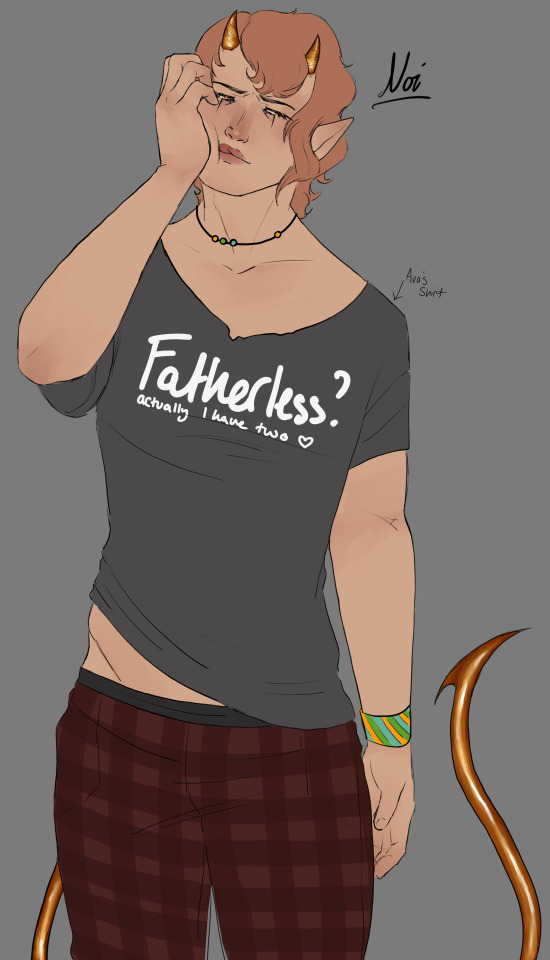
Despite the fact that Noi is someone who, previously, had a lot of energy for stuff, getting his magic drained kinda drained his energy too. For a few hours, he's good, but he's tired for the rest of the day. He's able to join in when everyone goes on their little adventures, but he knocks out as soon as he's somewhere comfortable.
He enjoys bright colours and lights, but he mostly hangs around in comfortable clothes. He can't be bothered to waste energy on menial things, like pulling on jeans, or trying to figure out how to button up a shirt. He can wear some of Ava's stuff, since she usually gets her pyjamas a few sizes up.
His horns and tail are metallic looking, and i would lie and go 'oh there's different kinds of daemos' (which there are) to justify it but nah i just got bored and shaded them that way lmao. Gonna keep it bc it's funky.
Even though he's the weakest of the Daemos, he's still quite intimidating to normal human dudes.
He enjoys things that are typically 'unhealthy'. He lounges about, eating junk food, drinking fizzy drinks, etc. He also, in his limited awake time, enjoys himself some videogames.
He's the best out of the bunch at videogames, and so he got some weird amount of respect for that. He obliterated them all at COD and since, well, it is warfare of sorts, they had to admit defeat. The others even tried to make a 'if you didnt get a scar it wasnt a battle' excuse but he did end up getting a scar from asch rage quitting and throwing one of the controllers at his head. so, well, battle.
That said, He played three seconds against Ava and got absolutely destroyed. Ava promised not to tell the others.
In Asch!Harem context, he first got a little bit of a crush on Asch when Asch first took him in as a knight. It was a pity knighting, but he appreciated it none-the-less. It's kind of a childish crush, but he's still very fond of Asch. He's happy just being Asch's friend, though he, uh... hasn't quite gotten there yet.
Slightly offended that the Empress Dowager (Lady Grandma) treats him like he's adorable when she thirsts over the others, but he does like how nice she is to him. She can be a little harsh, but she's the *Empress Dowager*, he can accept it.
Mrs Oats was the first person who ever obviously perved on him, and he honestly didn't know how to feel about it.
He has a fascination with Koi fish. "Their names are like mine!!!"
His ears are kinda fucked up. they're less elfy and more just.... weird.
#oh yeah i can get into the whole empress dowager thing maybe. I kinda rearranged the Daemos monarchy a little#aphmau#aphverse#rewrite#aphblr#MID#My Inner Demons#Noi MID
75 notes
·
View notes
Text

Dowager Empress Maria Feodorovna with her eldest and favorite granddaughter, Princess Irina Alexandrovna.
#Dowager Empress Maria Feodorovna#princess irina alexandrovna#princess irina youssoupoff#Romanov#Yusupov#Yussupov#Youssoupoff#Nobility
23 notes
·
View notes
Text
Married Mongolian Women’s Hairstyle in the Yuan Dynasty
Mongolians have a long history of shaving and cutting their hair in specific styles to signal socioeconomic, marital, and ethnic status that spans thousands of years. The cutting and shaving of the hair was also regarded as an important symbol of change and transition. No Mongolian tradition exemplifies this better than the first haircut a child receives called Daah Urgeeh, khüükhdiin üs avakh (cutting the child’s hair), or örövlög ürgeekh (clipping the child’s crest) (Mongulai, 2018)
The custom is practiced for boys when they are at age 3 or 5, and for girls at age 2 or 4. This is due to the Mongols’ traditional belief in odd numbers as arga (method) [also known as action, ᠮᠣᠩᠭᠤᠯ, арга] and even numbers as bilig (wisdom) [ᠪᠢᠴᠢᠭ, билиг].
Mongulai, 2018.
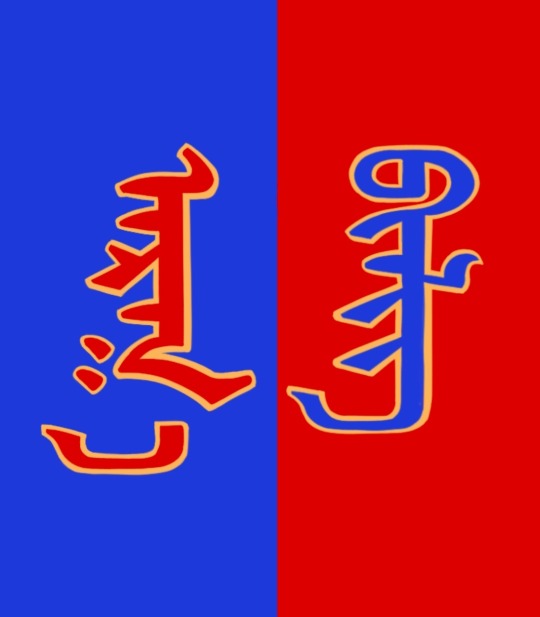
The Mongolian concept of arga bilig (see above) represents the belief that opposite forces, in this case action [external] and wisdom [internal], need to co-exist in stability to achieve harmony. Although one may be tempted to call it the Mongolian version of Yin-Yang, arga bilig is a separate concept altogether with roots found not in Chinese philosophy nor Daoism, but Eurasian shamanism.
However, Mongolian men were not the only ones who shaved their hair. Mongolian women did as well.
Flemish Franciscan missionary and explorer, William of Rubruck [Willem van Ruysbroeck] (1220-1293) was among the earliest Westerners to make detailed records about the Mongol Empire, its court, and people. In one of his accounts he states the following:
But on the day following her marriage, (a woman) shaves the front half of her head, and puts on a tunic as wide as a nun's gown, but everyway larger and longer, open before, and tied on the right side. […] Furthermore, they have a head-dress which they call bocca [boqtaq/gugu hat] made of bark, or such other light material as they can find, and it is big and as much as two hands can span around, and is a cubit and more high, and square like the capital of a column. This bocca they cover with costly silk stuff, and it is hollow inside, and on top of the capital, or the square on it, they put a tuft of quills or light canes also a cubit or more in length. And this tuft they ornament at the top with peacock feathers, and round the edge (of the top) with feathers from the mallard's tail, and also with precious stones. The wealthy ladies wear such an ornament on their heads, and fasten it down tightly with an amess [J: a fur hood], for which there is an opening in the top for that purpose, and inside they stuff their hair, gathering it together on the back of the tops of their heads in a kind of knot, and putting it in the bocca, which they afterwards tie down tightly under the chin.
Ruysbroeck, 1900
TLDR: Mongolian women shaved the front half of their head and covered it with a boqta, the tall Mongolian headdress worn by noblewomen throughout the Mongol empire. Rubruck observed this hairstyle in noblewomen (boqta was reserved only for noblewomen). It’s not clear whether all women, regardless of status, shaved the front of their heads after marriage and whether it was limited to certain ethnic groups.
When I learned about that piece of information, I was simply going to leave it at that but, what actually motivated me to write this post is to show what I believe to be evidence of what Rubruck described. By sheer coincidence, I came across these Yuan Dynasty empress paintings:
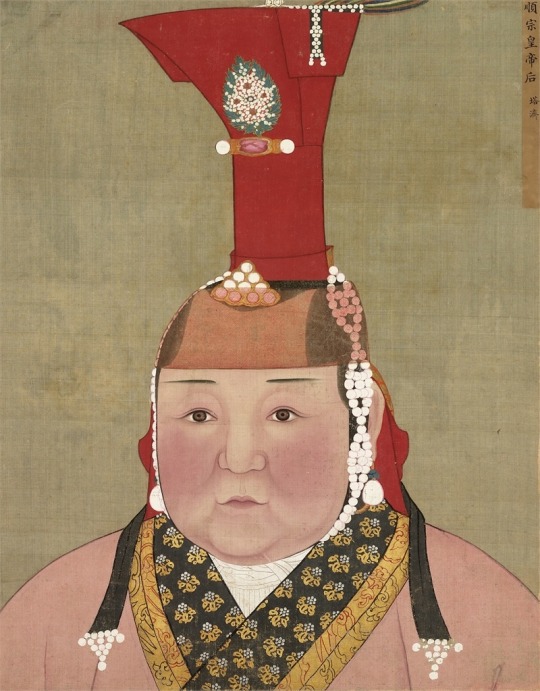
Portrait of Empress Dowager Taji Khatun [ᠲᠠᠵᠢ ᠬᠠᠲᠤᠨ, Тажи xатан], also known as Empress Zhaoxian Yuansheng [昭獻元聖皇后] (1262 - 1322) from album of Portraits of Empresses. Artist Unknown. Ink and color on silk, Yuan Dynasty (1260-1368). National Palace Museum in Taipei, Taiwan [image source].
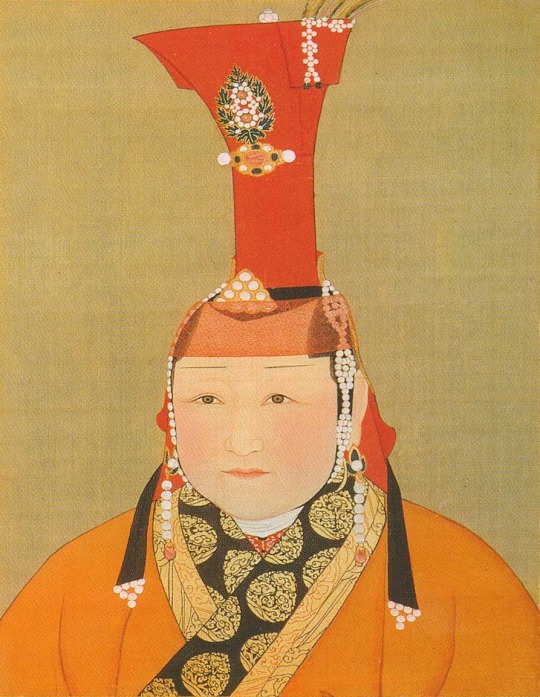
Portrait of Unnamed Imperial Consort from album Portraits of Empresses. Artist Unknown. Ink and color on silk. Yuan Dynasty (1260-1368). National Palace Mueum in Taiper, Taiwan [image source].

Portrait of unnamed wife of Gegeen Khan [ᠭᠡᠭᠡᠨ ᠬᠠᠭᠠᠨ, Гэгээн хаан], also known as Shidibala [ᠰᠢᠳᠡᠪᠠᠯᠠ, 碩德八剌] and Emperor Yingzong of Yuan [英宗皇帝] (1302-1323) from album Portraits of Empresses. Artist Unknown. Ink and color on silk. Yuan Dynasty (1260-1368), early 14th century. National Palace Museum in Taipei, Taiwan [image source].
To me, it’s evident that the hair of those women is shaved at the front. The transparent gauze strip allows us to clearly see their hairstyle. The other Yuan empress portraits have the front part of the head covered, making it impossible to discern which hairstyle they had. I wonder if the transparent gauze was a personal style choice or if it was part of the tradition such that, after shaving the hair, the women had to show that they were now married by showcasing the shaved part.
As shaving or cutting the hair was a practice linked by nomads with transitioning or changing from one state to another (going from being single to married, for example), it would not be a surprise if the women regrew it.
References:
Mongulai. (2018, April 19). Tradition of cutting the hair of the child for the first time.
Ruysbroeck, W. V. & Giovanni, D. P. D. C., Rockhill, W. W., ed. (1900) The journey of William of Rubruck to the eastern parts of the world, 1253-55, as narrated by himself, with two accounts of the earlier journey of John of Pian de Carpine. Hakluyt Society London. Retrieved from the University of Washington’s Silk Road texts.
#mongolia#mongolian#yuan dynasty#mongolian history#chinese history#china#boqta#mongolian traditions#history#gegeen khan#empress dowager taji#mongol empire#William of Rubruck#historical fashion#arga bilig#central asia#central asian culture#mongolian culture#asia
281 notes
·
View notes
Text

12 notes
·
View notes
Photo

Dowager Empress Maria Feodorovna of Russia and her sister Dowager Queen Alexandra of United Kingdom (consorts of Emperor Alexander III of Russia and King Edward VII of United Kingdom) in their house in Hvidovre, Denmark, ca. 1910.
#Dowager Empress Maria Feodorovna of Russia#Empress Maria Feodorovna of Russia#Empress Maria Feodorovna#empress maria of russia#Dowager Queen Alexandra of United Kingdom#Queen Alexandra of United Kingdom#Queen Alexandra#princess dagmar of denmark#Princess Alexandra of Denmark#Romanov#Imperial Family#imperial russia#british royal family#British Royalty#british royals#1910s#1910s fashion#1910#Hvidovre#digital coloring#colored photography#history colored#b&w picture coloring
198 notes
·
View notes
Text
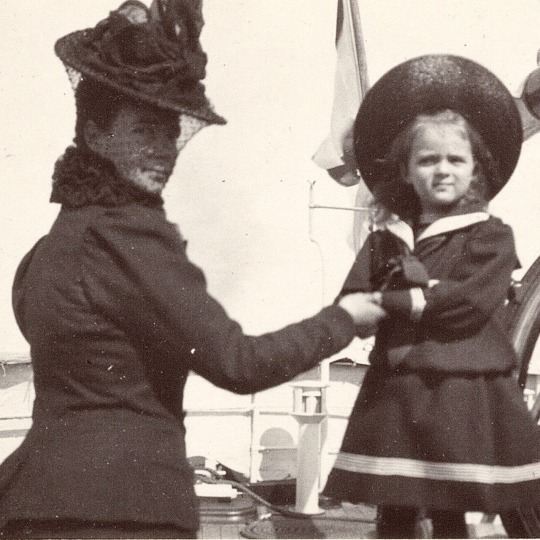
Dowager Empress Maria Feodorovna with her eldest and favorite granddaughter, Princess Irina Alexandrovna.
#Dowager Empress Maria Feodorovna#princess irina alexandrovna#Princess Irina Youssoupoff#Romanov#Nobility#Yusupov#Yussupoiv#Youssoupoff#Youssoupov
11 notes
·
View notes
Text
me and @pealeiis official anastasia revival dream cast
anya - bronte barbe
dmitry - robert lenzi
vlad - john dossett
gleb - jeremy jordan
lily - capathia jenkins
dowager empress - rita moreno
#anastasia#anya romanov#dmitry anastasia#vlad popov#gleb anastasia#lily malevich#dowager empress of russia#bronte barbe#robert lenzi#john dossett#jeremy jordan#capathia jenkins#rita moreno#“but half of these people are from newsies-“#shhhhhhh#its only weird if you make it weird
17 notes
·
View notes
Text
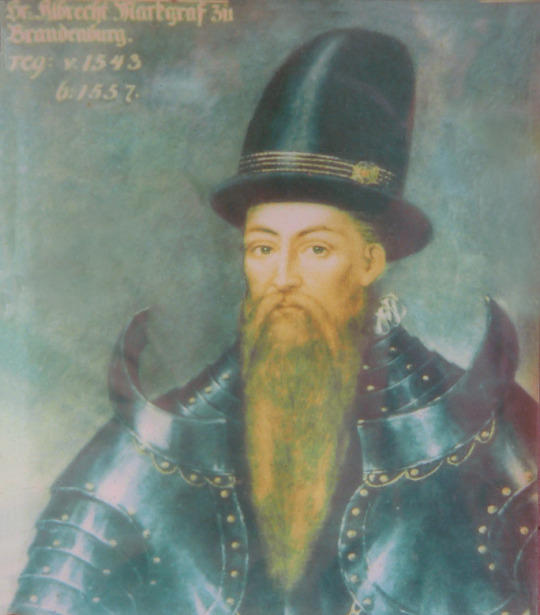
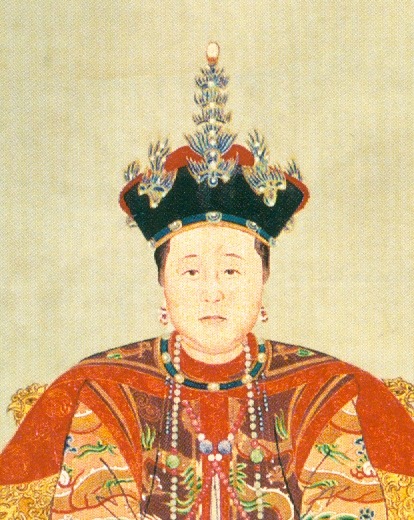
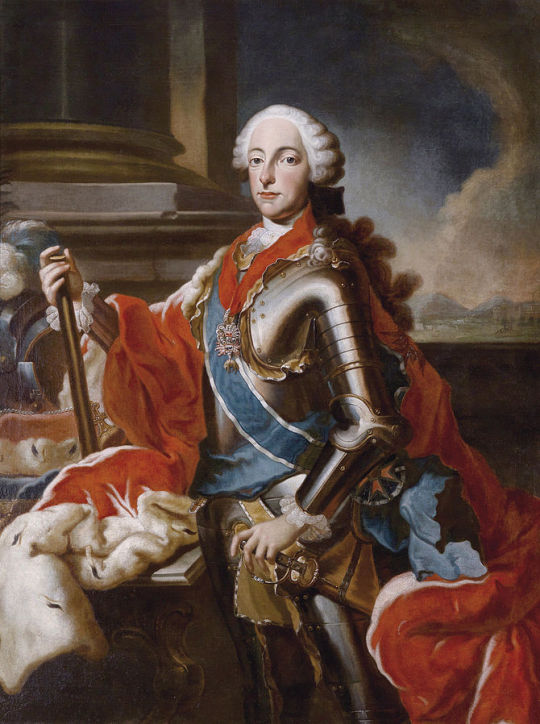

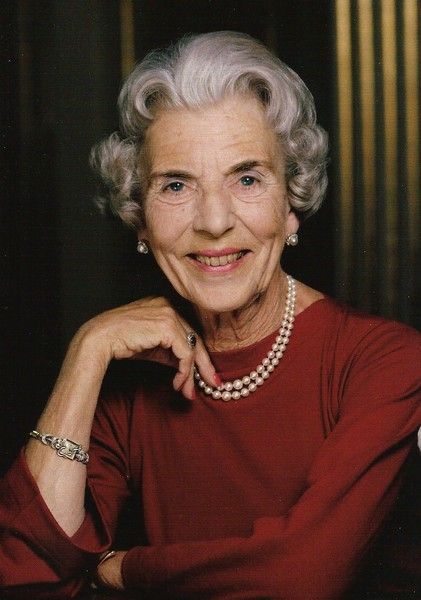
Royal Birthday for today, March 28th:
Albert Alcibiades, German Prince, 1522
Empress Dowager Zhaosheng, Empress Dowager of the Qing dynasty, 1613
Maximilian III Joseph, Elector of Bavaria, 1727
Märtha of Sweden, Crown Princess of Norway, 1910
Ingrid of Sweden, Queen of Denmark, 1910
#albert ii#Empress Dowager Zhaosheng#Maximilian III Joseph#martha of sweden#ingrid of sweden#long live the queue#royal birthdays
12 notes
·
View notes
Text
in anastasia, it's so obvious from the beginning that anya is the lost princess. in "a rumor in st. petersburg", she panics when she hears a truck backfiring, mistaking it for gunshots. while Dimitri and vlad were not present to witness that, it definitely arouse some suspicion within gleb.
when anya first meets with Dimitri and vlad, she claims that she's waiting for someone in paris. who's in paris?anastasias grandmother, the dowager empress. she also says that she's been in the room in the yusupov palace where the three currently were, where there was a play, with fancy clothing and expensive champagne. before she said that, she had no knowledge of the room they were standing in being a theatre of fhe yusupov palace. as she sings "in my dreams", the amnesiac recalls all the feverish memories she has of her past. she sings "a beautiful river; a bridge by a square; and i hear a voice whisper i'll meet you right there in paris". this shows that anya knows of a bridge in paris, which the dowager empress tells anastasia about during the prologue. she sings "i've seen flashes of fire; heard the echo of screams". how was anastasia's family murdered? assassination by gunfire. of course, there would be screaming and fire. it is also proved historically that anastasia was the second to last one to be assassinated, the first being her younger brother, alexei. that being, she had already witnessed the five murders of her parents and sisters.
during the "learn to do it" scene, there is so much clear evidence of anya being the lost princess that it's almost comical that vlad and dimitri don't realize it. the first one is when she perfectly curtsies, without being taught by vlad how to. the second time is when vlad asks who her best friend is, she replies "my little brother alexei". vlad tells her that she's wrong, to which she replies "i know who my best friend is!" this shows that anya knew things about anastasia's life that wasn't public knowledge. the third time is when she's learning her family tree, and claims that she recalls count sergei's yellow cat, to which vlad says "i don't believe we told her that". at the end of the song, vlad tells her that she did very good, but says it in french, to which anya replies in perfect french. vlad and dimitri hadn't taught her how to speak french. if anya knew how to speak french, then there was no possibility that she was of peasant descent.
when anya is in a meeting with gleb in the communist headquarters, he tells her that his father was one of the guards that killed the romanovs, and that all seven of them were dead, to which anya replies "i don't want to hear it", showing that either she had trauma regarding the assassination, or that she just wanted to live out her fantasy.
when dimitri gives anya the music box, which they had not yet realized was hers as a child, she is able to open it while he cannot. he is confused at this, and is amazed at the fact that anya knows the song that it plays. while she sings "once upon a december", the ghosts of the romanovs are onstage, and dance with her. while this is just the staging, it shows that anya has some sort of connection to them. after the song, she reveals to dimitri that she has a diamond in her pocket, which the nurse at the hospital found seen into her underclothes. when the romanovs were being taken to the cellar where they would be assassinated, they were under the influence that they were being taking to e new location, so empress alexandra of russia, anastasia's mother, urged all the girls to put their expensive jewelry into their underclothes. the diamond gives proof that anya had some value to her name in the past, without blatantly revealing that she was the grand duchess anastasia.
during the scene on the train, communist officers board asking for people who are traveling illegally, which are anya, dimitri, and vlad. anya panics and dimitri assures her that it's all going to be okay. anya says to him "that's what the soldiers said when they were pointing their guns at us". this intrigues dimitri, and he asks anya more. she says "they said they were taking us somewhere safe. toby’s little heart was beating against mine. ‘they’re decent men,’ I told him. ‘they won’t harm us’." of course it's weird that anya is saying all this, but dimitri, amidst distraction, brushes it off, telling anya that she's taking this to far, not realizing that what she's saying is her actual experience.
during "crossing a bridge", anya stands of tsar alexander iii bridge, which is the one the dowager told her about, the one in her dreams, she just didn't know it yet.
during the scene where anya has a nightmare, it is shown that her nightmare is of her being taunted by the romanovs, along with more superfluous russian nobles. when dimitri comes in to comfort her, he tells her about how he, as a child, fell in love with anastasia, yet never believed he could be with her. when anya is singing, the sings "i tried not to smile; but i smiled; and then, bowed". dimitri is shocked, because while she was aware he had bowed to someone once, she was unaware that that person was anastasia. that is when they both realize that she is the grand duchess anastasia, and that the childhood crushes were finally reunited.
during the ballet, the dowager empress sees anya, and sings "see that girl; could it be?" showing that even she thinks it might be anastasia, but doesn't want to believe it. after the ballet, anastasia goes into the interview with the dowager, to which she is immediately dismissed and branded a fraud. now anya is upset at dimitri, because she thinks that she was always just a pawn in his scheme to get the reward money from the dowager empress.
when the dowager goes to anya's hotel to give her a second chance, she interviews her, asking questions such as "what was your mothers full title as empress of all russia?" anya only gives sentimental replies to these questions such as "she was mama to me. she was mama to all of us." the dowager is at first unpersuaded, until anya tells her that "my nana was the most loving woman imaginable." the thing that set this aside from the rest of the girls trying to be anastasia is that anya used "nana", while everyone else believed her to be "grandmama". anya can also recall the very specific scent that the dowager would always wear. orange blossom from sicily, that came in a box of polished inglewood. it is the final revelation when anya shows the dowager the music box, which was a gift that the dowager had given anastasia, right before the assassination. this finally reunites the dowager empress with her long-lost granddaughter.
during the press conference scene, anya is reintroduced with count leopold, and upon meeting him, says "count leopold, with your dyed hair, powdered face, and vodka breath. no wonder my parents laughed at you behind your back," a statement which the dowager confirms to be true.
when gleb finally catches up to anya, during "the neva flows/still reprise", he holds her at gunpoint, believing that all the romanovs must be dead. at first, he doesn't believe that she is anastasia, until she attests to that, making gleb having to shoot her. while she is terrified, she doesn't want to seem weak to gleb, so when he asks her "for the last time, who are you?" she responds "i am the grand duchess anastasia nicolaevna romanov. gleb cannot do it, so he drops the gun, and allows anya to go.
dimitri, while leaving paris, accepts the fact that anya and him cannot be, while anastasia disagrees. anya chooses being with dimitri over being anastasia, and while remains in contact with the dowager, lives with dimitri, and the reward money for anastasia's return is given to charity.
#anastasia#anastasia musical#anastasia romanov#romanov#musicals#theatre#theatre kid#dimitri anastasia#vlad popov#dowager empress#russia#history
9 notes
·
View notes
Text
𝐇𝐢𝐬𝐭𝐨𝐫𝐢𝐜𝐚𝐥 𝐂𝐡𝐢𝐧𝐞𝐬𝐞/𝐊𝐨𝐫𝐞𝐚𝐧 𝐃𝐨𝐰𝐚𝐠𝐞𝐫𝐬 (𝟏/?)






𝐄𝐦𝐩𝐫𝐞𝐬𝐬 𝐃𝐨𝐰𝐚𝐠𝐞𝐫 𝐙𝐡𝐚𝐧𝐠 (𝟏𝟑𝟕𝟗-𝟐𝟎 𝐍𝐨𝐯 𝟏𝟒𝟒𝟐)
*𝐀𝐥𝐥 𝐠𝐢𝐟𝐬 𝐚𝐧𝐝 𝐬𝐭𝐢𝐥𝐥𝐬 𝐠𝐨 𝐭𝐨 𝐭𝐡𝐞 𝐨𝐫𝐢𝐠𝐢𝐧𝐚𝐥 𝐨𝐰𝐧𝐞𝐫*
9 notes
·
View notes

